Last month David, Chiara, Ali, Malcolm, Miriam, George, Sarah, Linsan, Micha, and Kelly from Hutton CMS, ICS, and EBS, and Uni of Dundee plant sciences attended the annual Monogram conference between the 25- 27th of March.
Dr Kelly Houston (IBH and Cell and Molecular Biosciences at The James Hutton Institute)
The Monogram network (name taken from Monocots & Gramineae) was established in 2005 and consists of UK based is a community of academics and industry-based scientists that focuses on research involving small grain plants (mostly wheat and barley, but also rice and blackgrass this year) in the UK. The organisation includes both basic and more applied research and its members span disciplines including plant genetics, physiology, pathology, breeding, and bioinformatics. This year’s conference was hosted by Rothamsted Research and had a record-breaking registration of 217 delegates. Founded in 1843, Rothamsted is the longest continually operating agricultural research station in the world and they hold the world record for the longest running agricultural experiment!
The packed program included 27 talks, 56 posters, a flash poster session, a women in crop science workshop, and a panel discussion. The sessions included Climate change, Productivity, Quality, Biotic interaction, The Below ground Environment, Advances in Genetic and Genomic Technologies.
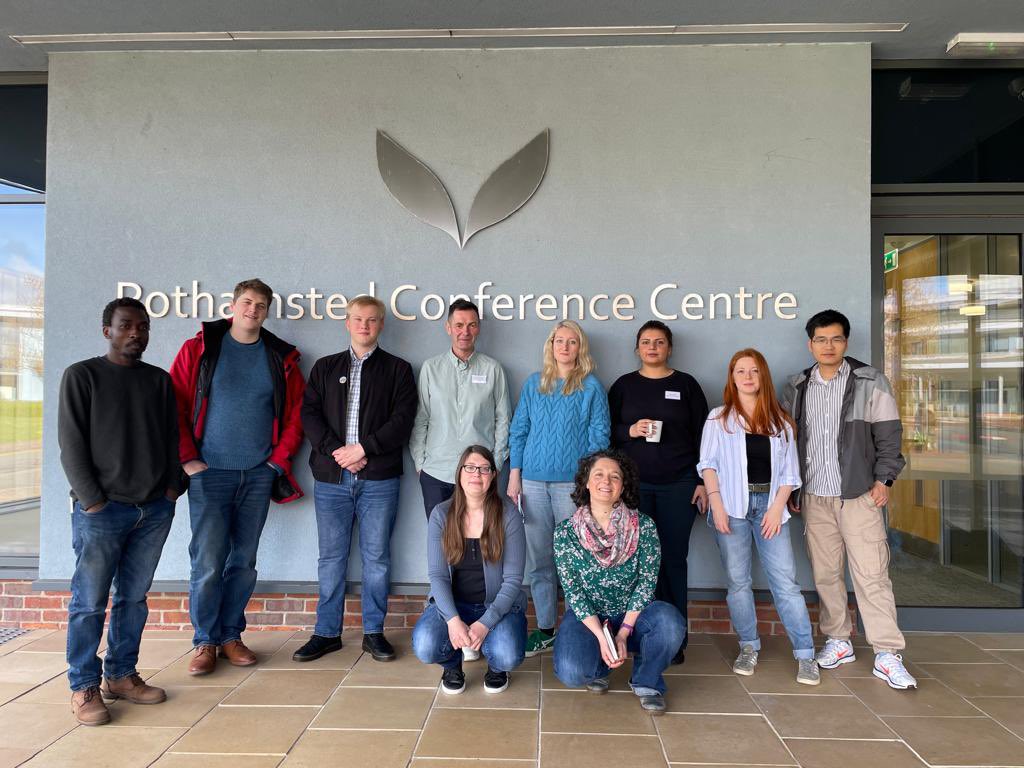
The opening talk of the conference was by Laura Dixon from the university of Leeds who gave the RANK Prize ECR excellence lecture, “Understanding cereal floral regulation for a changing climate” setting the scene for the rest of the meeting. Malcolm spoke about recent work on dense spike 9, a gene which influences plant architecture. An interesting and varied poster session which captured the breadth of topics people from the Monogram community work on rounded of day one of the meeting. This session featured posters by David, Ali, Miriam, George, and Linsan who all had interesting discussions with other delegates about their research.
Day two of the meeting started with an inspiring plenary talk by Jane Langdale “Can biological engineering recapitulate evolution? Insights from the C4 rice project”. This project aims to import the genes responsible for the biochemical and anatomical differences between C4 plants such as maize into rice, a C3 plant to boost rice yields. While the genes are now known and have been validated in rice some fine tuning is needed to ensure the project delivers on its original ambitious objectives. In the second session of the day Kelly gave a talk about HvHMA5 and its role in copper transport. The conference dinner held at the Rothamsted provided further opportunities to catch up with collaborators, meet new people, and discuss potential opportunities.
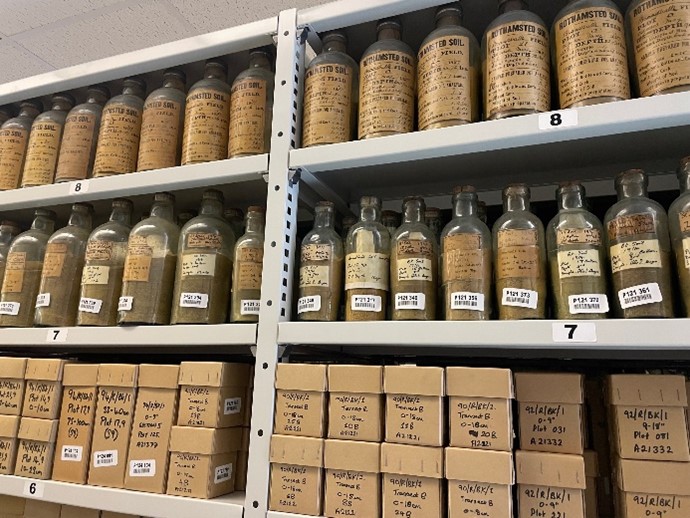
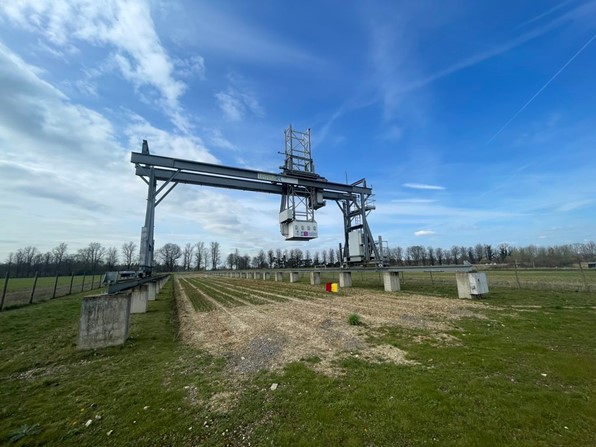
Our hosts at Rothamsted very kindly showed delegates their research facilities and resources including the Field Scanalyzer (the world’s first field crop analytics facility) and the Rothamsted Sample Archive (RSA) which was established by Lawes and Gilbert in 1843. Types of samples within the RSA include ground and unground wheat grain, straw, soil, and herbage together with fertilisers, manures and lime from the Rothamsted Long-term Experiments including the Park Grassland Experiment.
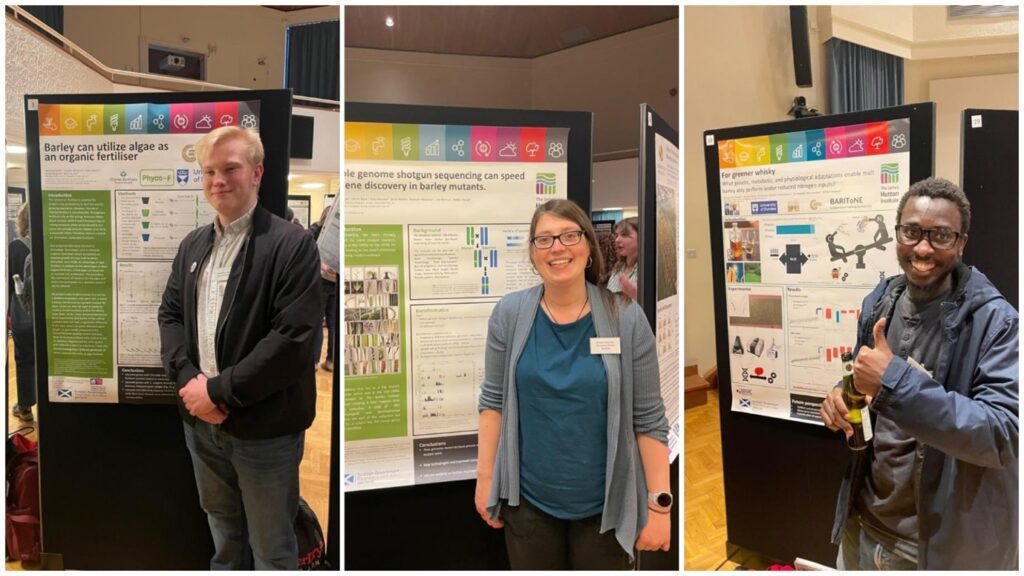
The final day of the meeting started with a session on Advances in Genetic and Genomic Technologies, with two talks on pangenomes and a talk by Micha about “Repurposing public RNA-Seq data: The EORNA gene expression database”. The last session of the meeting, the Monogram Early Career Awards (MECA) always provides a really positive end to the meeting. The Monogram committee awards two early-stage career researchers (one Phd student and one Postdoc) a prize based on how their research contributes to the Monogram community. As part of this the recipients get the opportunity to speak at the meeting. The winners of the PhD prize, Rose McNelly, and Postdoc prize, Nitin Uttan Kamble, both spoke about their research on wheat starch, identifying and validating several genes involved in the content of this important plant polymer. Rose’s work utilised genetic variation present in the wheat wild relative, T. turgidum. Nitin identified that the gene PHS1 contributes to the initiation of B -type starch granule formation. This has led to a collaboration with Crisp Malt, a UK based malting company because B type granules in starch cause haze in beer which is undesirable and needs to be filtered out.
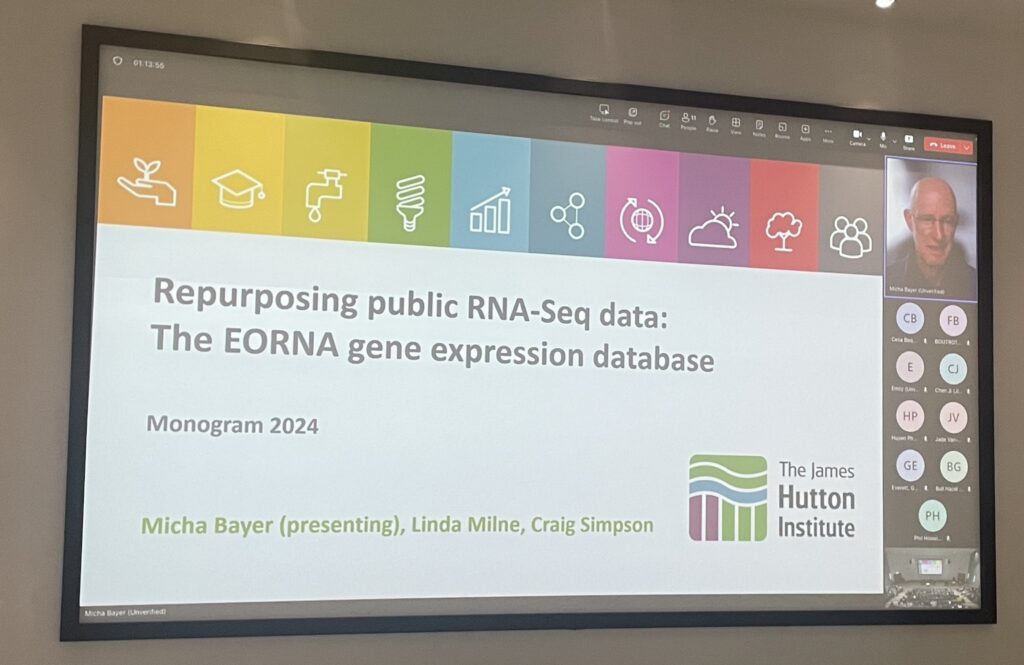
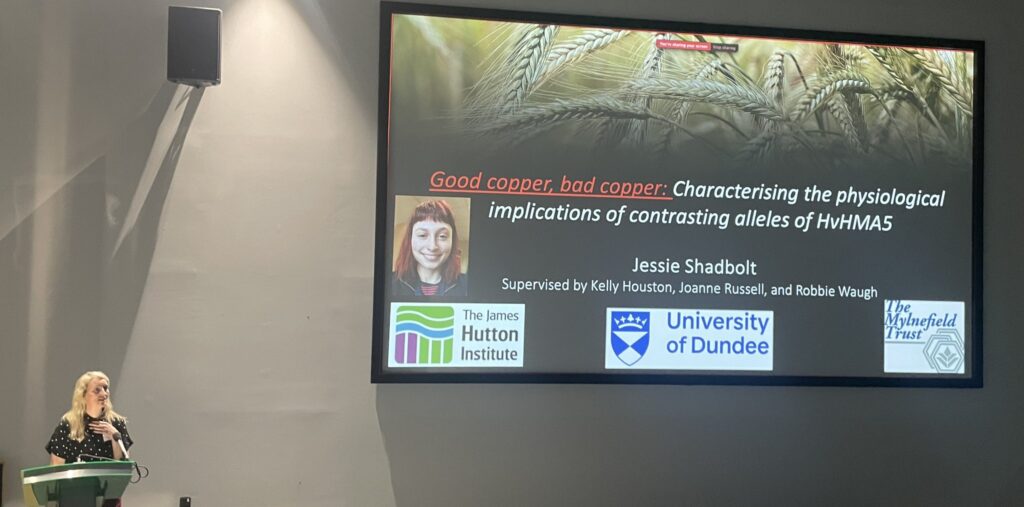
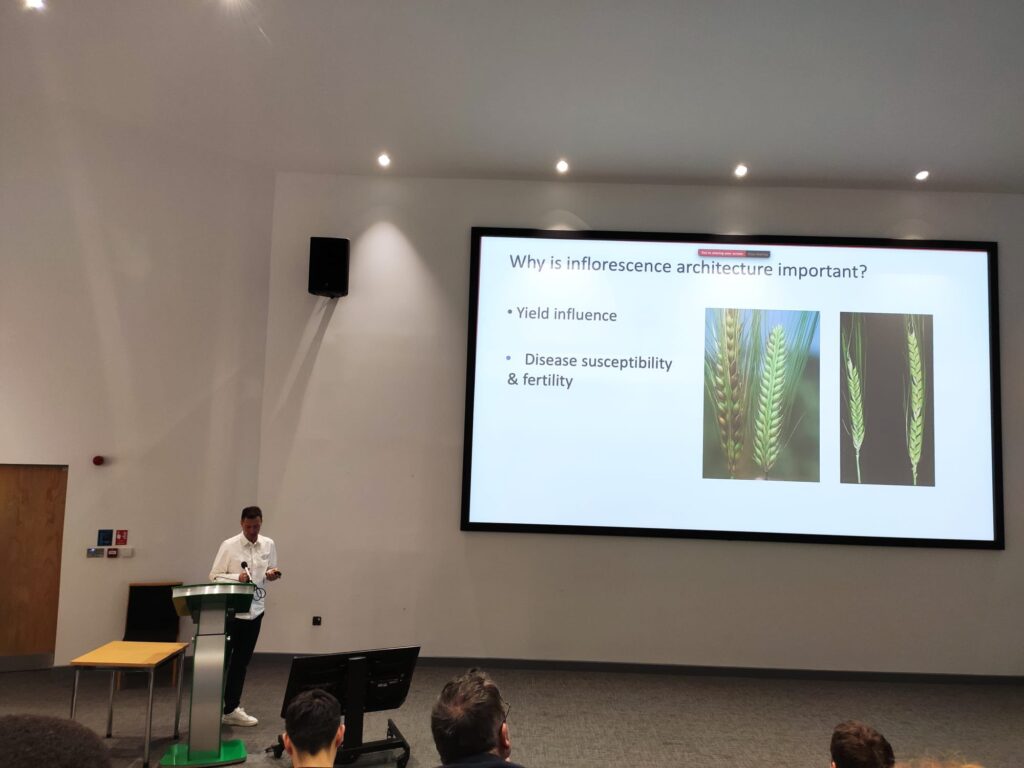
Malcolm, Kelly and Micha present their work at Monogram 2024.
The final announcement of the conference was where Monogram 2025 is going to be held, the answer at Aberystwyth University! After this all that was left to do was to head back to Dundee, full of new ideas to follow up on after our return.
